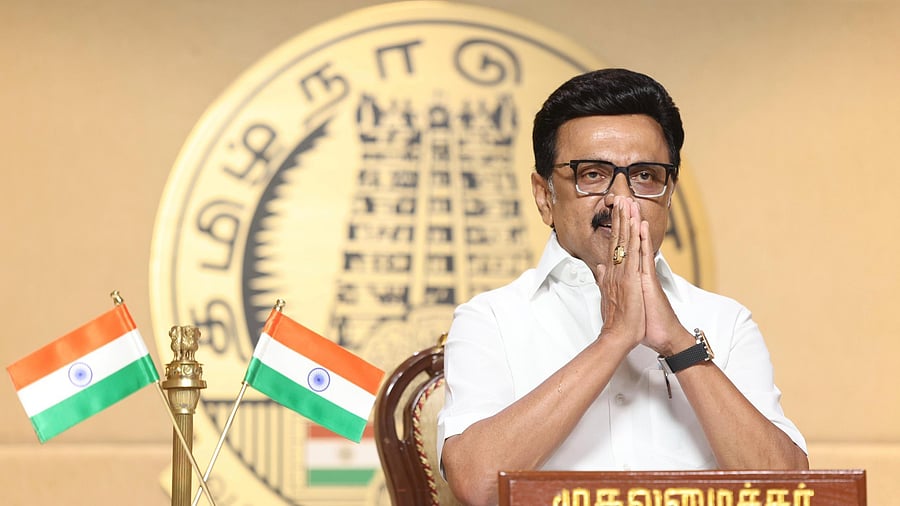
Tamil Nadu Chief Minister M K Stalin.
Credit: X/@mkstalin
Chennai: As many as 12,480 rural local bodies in Tamil Nadu on Saturday passed resolutions to remove derogatory caste-based names from residential areas, streets, public spaces, and water bodies, and rename them with appropriate names, even as a new government scheme to identify the needs of the village and implement them was launched.
Chief Minister M K Stalin, who chaired the meetings virtually, stressed that gram sabha meetings are fundamental to grassroots democracy and asked the panchayats to ensure that schemes are formulated with a focus on social justice and equality.
Connecting with villagers through video conferencing, Stalin also interacted with people from five village panchayats in Chengalpattu, Tenkasi, Madurai, Villupuram, and Thanjavur districts. Stalin told the villagers that he was the first Chief Minister in the state to participate in gram sabha meetings and interact with people.
Contending that the Dravidian Model government led by him is working to establish social justice and equality, Stalin said steps are being taken to rename streets and areas with caste-based names that carry a derogatory connotation and replace them with neutral names.
“Furthermore, under the ‘Namma Ooru, Namma Arasu’ (Our Village, Our Government) scheme, people should identify three critical needs of their villages, and pass resolutions. The district administration must ensure that these identified needs are fulfilled immediately,” Stalin said.
The scheme to rename streets and areas with derogatory caste-based names has come under criticism after the government released a list of alternative names in which leaders from Dalit and other oppressed communities are absent. Moreover, the government recently named a new 10.10-km flyover in Coimbatore after scientist G D Naidu.
Speaking about the Thayumanavar scheme, measures are being taken to enhance the welfare of women and children. “While our government is implementing all these schemes and initiatives, citizens should help take our villages to the next level. We must ensure that children in every household are educated. If anyone employs child labourers, they should be rescued,” he added.
IT Minister P T R Palanivel Thiaga Rajan said the video conferencing was a new milestone in Tamil Nadu's internet revolution as over 11,800 village panchayats across the state have now been connected via Optical Fiber Cable (OFC) as a result of the efforts initiated in 2022 to provide internet services to rural areas.